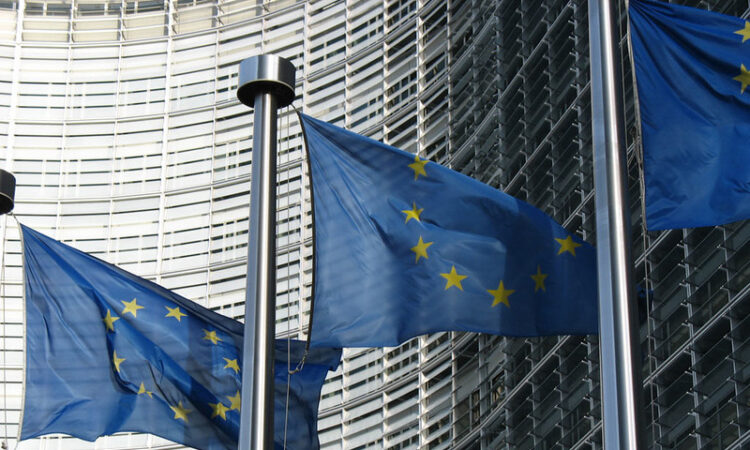
The European Commission will present on Tuesday (18 October) a package of measures to tackle the energy crisis, including a temporary “dynamic” gas price cap mechanism aimed at curbing price volatility.
The proposal will be discussed by EU leaders during their regular summit meeting in Brussels on Thursday and Friday.
Different cap options to tackle skyrocketing energy prices have been discussed in the past months, with many different ideas being presented and shot down. It’s a lot to take in, so below follows a summary of pressing issues ahead of the EU summit.
Where it started
EU countries have been split for months over whether to set a gas price cap in order to reduce soaring bills — an idea first floated by Spain and Portugal in spring.
At least 15 member states have been pushing for an EU-wide wholesale gas price cap for both imports and intra-EU gas transactions, because of the key role of gas as a price-setting mechanism for the final price of electricity.
But Germany, the Netherlands and Hungary, among others, have opposed the move — amid fears that such intervention would undermine security of supply or inadvertently increase consumption.
The current proposal
The upcoming proposal, which can still be subjected to last-minute changes, will include a “dynamic price limit” for transactions on the Dutch Title Transfer Facility (TTF), according to several media reports.
The TTF, Europe’s hub for gas-futures trading, is currently used for both pipeline gas and liquified natural gas (LNG).
But the EU commission president Ursula von der Leyen told EU leaders earlier this month that the TTF is “no longer representative of the cost of imported gas”.
As global shipments of LNG to Europe have significantly grown since March, the commission announced back in September that a complementary benchmark for LNG prices was being developed in a bid to curb speculation.
According to the latest draft summit conclusions, seen by EUobserver, EU leaders would agree to “explore a temporary dynamic price corridor” on gas until the new index is in place.
What critics say
Energy experts, meanwhile, have voiced concerns about the risks that such a mechanism entitles.
Simon Dekeyrel, climate and energy policy analyst at the European Policy Centre think tank, said that such a dynamic price cap for gas transactions on the European spot market could allow rival LNG buyers outside Europe to outbid the EU.
“As such, there is a risk that this mechanism limits the EU’s ability to attract LNG supplies, which could further aggravate the European energy crisis,” Dekeyrel told EUobserver.
The idea of creating a “dynamic” gas price cap was floated by Poland, Belgium, Greece and Italy earlier this month. But they wanted it to be applied to wholesale gas transactions.
Additionally, a new temporary intraday price spike cap mechanism “to avoid excessive price volatility” is expected to be part of the commission proposal due this week.
Other options to mitigate high energy prices include the use of public funds to support businesses struggling with excessive energy prices that could be introduced without breaking the bloc’s anti-subsidy rules.
During the summit, EU leaders are also expected to agree to “explore a temporary EU framework to cap the price of gas in electricity generation” — a measure that has already been introduced in Spain and Portugal.
Next winter
With reduced Russian gas supplies sent to the bloc, the EU is seeking to increase volumes from suppliers across the globe to secure deliveries ahead of next winter — when fulfilling gas storage facilities could become a challenging task.
The commission proposal will include the idea of negotiating with suppliers in Norway and the US, having joint gas purchases, and establishing a solidarity mechanism among member states in case of an emergency.
Building on the Covid-19 vaccine strategy, EU leaders agreed to purchase gas together — on a voluntary basis — in March. Back then, some warned that the effect on prices would be small.
An EU commission-led negotiation team, established to hold talks with gas suppliers to try to secure better prices and enough supplies for the winter, held its first meeting in April.
No joint purchases have been made until now.
The platform, nevertheless, was used to try to secure gas deals with countries like Norway, Azerbaijan and Algeria, a commission spokesperson said last week.
Detailed and in-depth discussions over the commission proposal will take place later this month (25 October) among energy ministers, who are expected to adopt the commission proposal in early November during an extraordinary council meeting.
If you have any pressing questions on the gas price cap proposals, or would like to us explain some part of it, we welcome your messages: at@euobserver.com






